If, as an adult, you are CONVINCED that your academic institution SUCCEEDED in providing an excellent education, BUT has made you an ardent and blind supporter of the institution — approving of everything it says, does, represents, and stands for unquestioningly — then it failed you.
As a science teacher — and now an educator in general — one of the many very important skills I endeavored to impart my students was questioning skills. Whether a student asked questions just out of curiosity, or questions that I didn’t know the answer to, or when a student challenged what I was teaching, doing, or what I appeared to endorse or believe etc., I took pride in that. The reason being that I took that as evidence of my being on the way to imparting the valuable skill — at least to the student asking the question or questions.
Of course, another important personal benefit of that was my own personal and intellectual growth. In trying to find the answer to the difficult question I didn’t know the answer to (together with the student or students) or in attempting to answer a personally challenging question, I invariably learned things I didn’t know — about something else and/or about my own self! And yes, my students have taught me a great deal, including by my little nephew even as young as he is — at nine now, the youngest “student.”
Why is questioning skills important or valuable apart from helping fuel that innate sense of curiosity children are born with and keeping it burning anyway? The following is at least one reason.

Sadly, questioning skills is NOT something Nepali society values and therefore neither formal nor informal education in Nepal earnestly endeavors to impart. As a matter of fact, in the highly stratified Nepali society, asking too many questions is viewed as not only a nuisance, in many contexts also as disrespectful and even a challenge to authority, status quo, and the “natural” order of thing — something our society values greatly.
I was reminded of all this recently by St. Mary’s School’s press release responding to the firestorm generated by current and former students of the school making posts on social media about the issues at the school (see references). The press release had some major issues, including but not limited to their avoiding acknowledging the issues pointed out by — and the grievances of — the students and graduates.
But, sadly but NOT surprisingly, users commented extending their whole-hearted and blind support for the school and its decisions. There were those who professed to have gotten a very good education at the school but didn’t appear to have been educated enough to recognize the issues with the press release.
But then again, in Nepali culture, being critical of an institution (or individual) that one believes to have done well by you, or you have benefited from, or one feels — or has been made to feel — indebted to for whatever reason, is viewed as being ungrateful. In that way — and many others — Nepali culture is black and white.
Of course, one can be grateful for what one has gotten from an institution, such as a school, and at the same time be critical of it so as to improve it and serve the next generation even better!
Anyway, here are some of those comments.


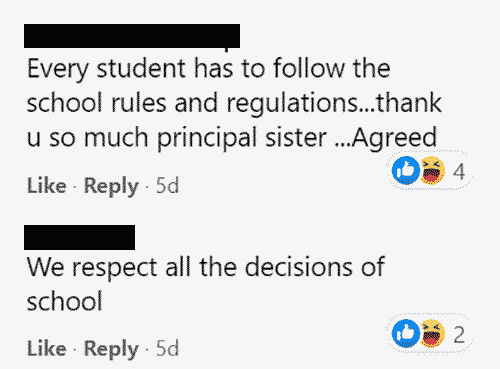
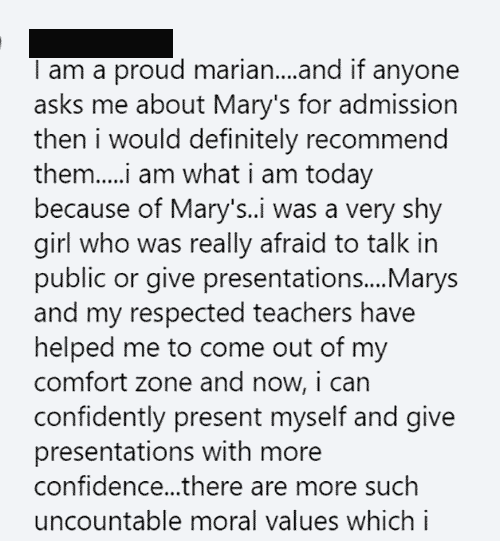


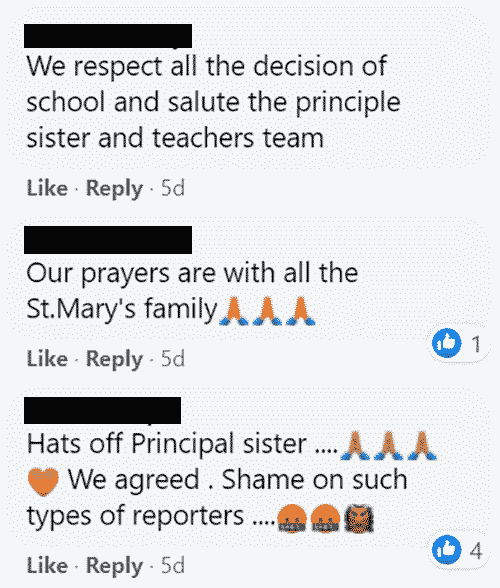
Incidentally, the above are just a small sample. I have read similar sentiments expressed by current and former student of St. Mary’s in other public platforms too, such as Instagram. I have also heard similar sentiments expressed by students of other schools, notably, by fellow graduate of my own school of St. Xavier’s. I have had fellow graduate share similar sentiments when discussing our experiences and also my writings about some of the issues with the school and its culture — of violence for example.
All that reminded me of something the inimitable physicist and great mind Richard Fenman is supposed to have said.
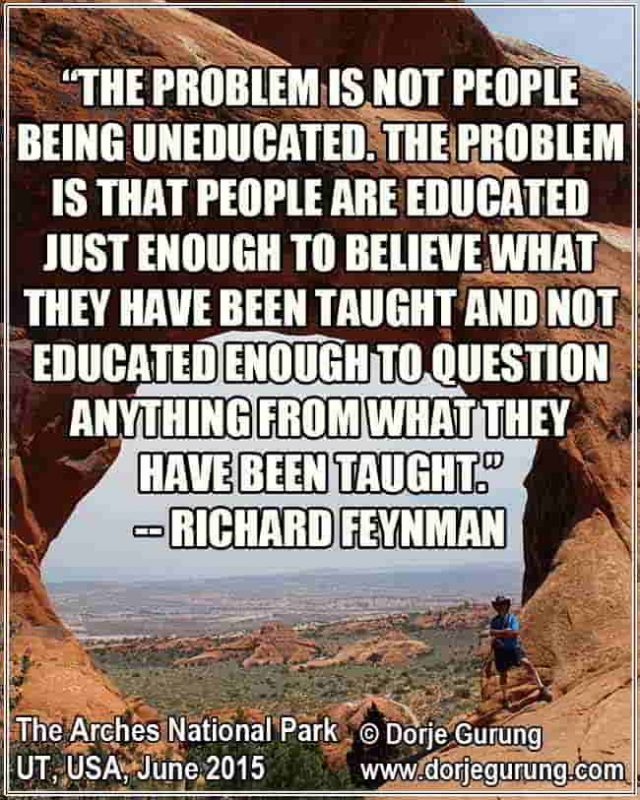
But then again, in closed and inward-looking Nepal, we don’t have a shortage of people, even educated ones, who espouse the following belief.
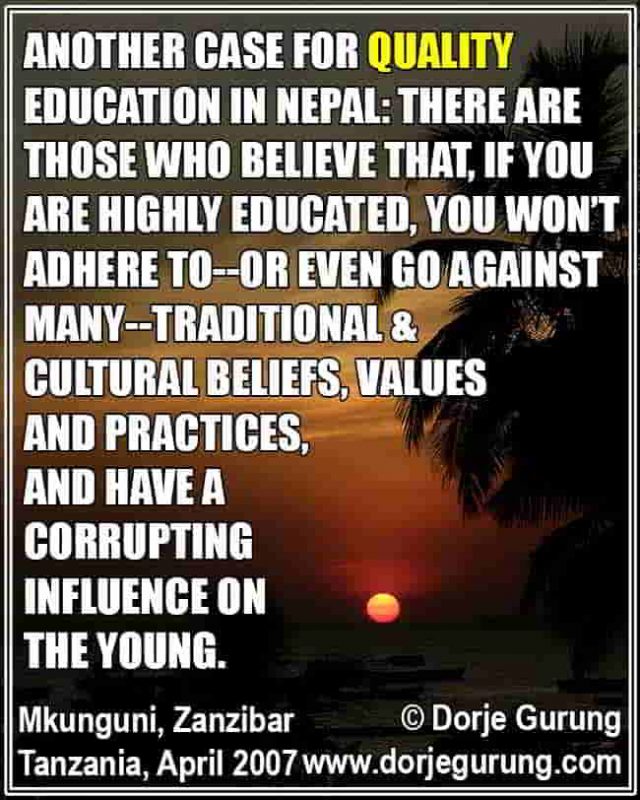
What do you think?
References
- Oh Why Oh Why Oh Why. Far from teaching students questioning skills, Nepali education system actually beats the innate curiosity out of children — in many cases, literally.
- All for National Unity… Well Maybe Not… All! One of the belief Hindus have is that social order — the “natural” order of things — is divinely ordained and as such, if it breaks down, the God Vishnu will come down to earth and restores order.
Articles about issues at St. Mary’s School spawned by the social media firestorm generated by social media posts.
- The Record (April 4, 2021). St Mary’s School grapples with sexism, homophobia, and body shaming.
- The Record (April 8, 2021). In upholding outdated gender norms, Nepali schools are failing their students. Sparked by the debates and discussions generated by the social media posts about St. Mary’s School, this piece is about some of the ways schools in Nepal fail our children. It also references St. Xavier’s School, my former school. St. Xavier’s have been around for about 70 years and in only the last 20 of that have they been co-educational! What is interesting and telling about this piece is that it took two FEMALE St. Xavier’s graduates to share this with the public.
- The Kathmandu Post (April 13, 2021). How a conversation around the length of one’s hair exposed the toxic environment of a Kathmandu school. “Considered one of the most prestigious schools in the country, St. Mary’s, former and current students say, reeks of toxicity, with many having had to go through years of harassment, queerphobia, and public humiliation.”
- no translations available. A blog post by a 2014 graduate of St. Mary’s school, who I also know. “I was the kid who teachers would offer to write recommendations for. I was the kid who had the privilege to attend an international high school and fly to the West for a college education. I say this […] [t]wo, because I have hope that in recognizing the complexities of our experiences, those of us who are vehemently defending the school will reflect on our own experiences and ask ourselves why we arrive at such conclusions.” [Added on April 26, 2021.]

